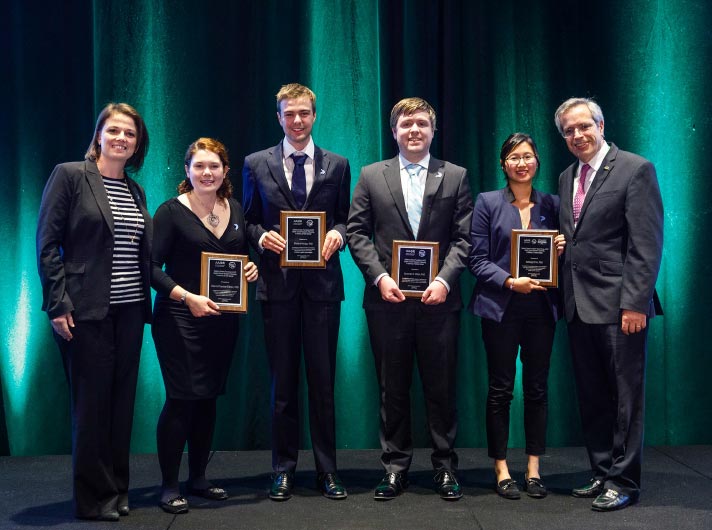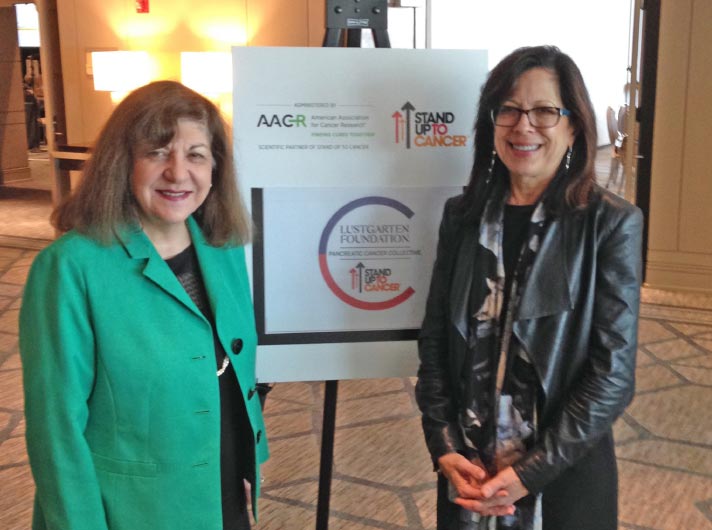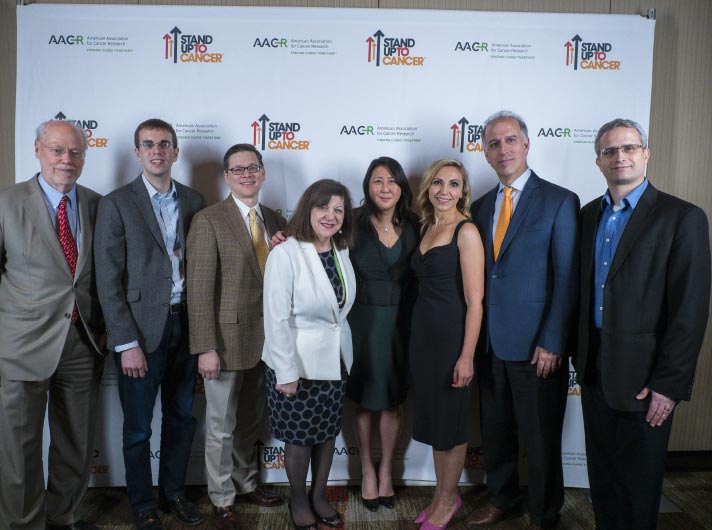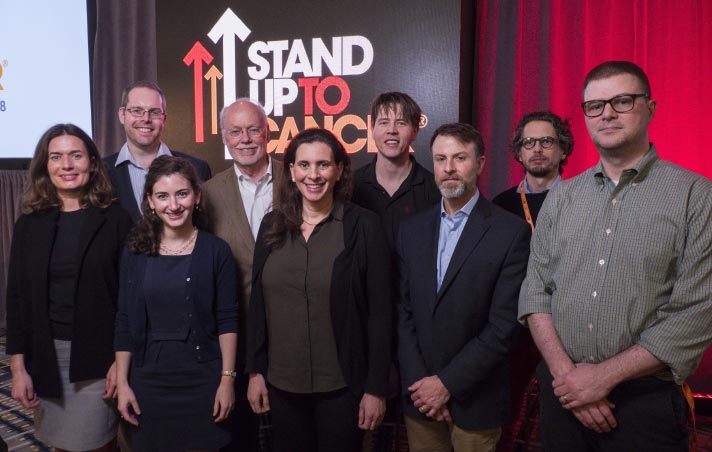AND GRANTS
ADMINISTRATION
Since the AACR Grants Program launched in 1993, AACR grantees have earned more than $70 million in additional funding. In addition, they have published more than 700 original research articles on innovative cancer science and technologies, including the identification of novel cancer targets and pathways as well as potential therapeutics. These articles have been cited more than 58,000 times, exemplifying the impact that AACR grantees have on the field.
In 2018, the AACR partnered with AstraZeneca and Bayer to offer a unique funding model designed to foster collaboration between academic research centers and the pharmaceutical industry. The Stimulating Therapeutic Advancements through Research Training (START) grants are among the first of their kind in non-profit grantmaking, offering postdoctoral and/or clinical research fellows the opportunity to spend one year of their training conducting research onsite at a pharmaceutical company.
In addition, through the support of the Johnson & Johnson Lung Cancer Initiative, AACR offered three new Team Science grants focused on lung cancer interception and prevention. The AACR-Johnson & Johnson Lung Cancer Innovation Science Grants are expected to drive innovation by supporting collaborative team science focused on identifying novel approaches to the prevention, interception, and cure of lung cancer.
Scientists from 41 institutions were funded by AACR grants in 2018; these investigators received more than $10 million in support of research across the spectrum of cancer science.
Applications for AACR grants were evaluated in 2018.
Expert scientists served on 17 scientific review committees to select the 2018 grant recipients. The AACR is a trusted administrator of research support, providing scientific oversight and expert peer review that is fast, flexible, rigorous, and transparent.
Birgit Knoechel, MD, PhD
AACR Grantee
Amount awarded to postdoctoral and clinical fellows in 2018, providing critical resources to spark the career development of the next generation of cancer scientists. The 2018 awards included the Debbie’s Dream Foundation-AACR Gastric Cancer Research Fellowships, which provided $50,000 each to support four fellows working on mentored gastric cancer research.
Amount awarded to eight junior faculty in 2018 to support the launch of their independent research careers.
Amount awarded through partnerships with the pharmaceutical industry, including new partnerships with Johnson & Johnson and Loxo Oncology and expanded partnerships with AstraZeneca and Bayer.

Collaboration and accountability are critical elements of the SU2C funding model. By bringing together grantees on a regular basis, SU2C and the AACR monitor the progress of funded research projects and encourage project leaders to explore new opportunities to work together.

The primary element of the SU2C funding model is the Dream Team, a scientific task force focused on a specific cancer problem that incentivizes collaboration among leading researchers from different institutions. At the AACR Annual Meeting in April, SU2C announced the launch of a new $10 million Dream Team to address the challenge of multiple myeloma.
A cancer afflicting the plasma cells of the blood, multiple myeloma is often not diagnosed until its later stages, and patients do not receive treatment until their disease has progressed and they have overt end-organ damage. Led by Irene Ghobrial, MD, and Ivan M. Borrello, MD, this new Dream Team seeks to change the disease treatment paradigm by characterizing the genomic, epigenomic, microenvironmental, and immune regulators of progression, and developing effective strategies to intercept disease progression.

Through its focus on team science and its emphasis on interaction at annual Scientific Summits, SU2C has fostered a community of leading researchers addressing the most difficult challenges in cancer research. The Phillip A. Sharp Innovation in Collaboration Awards encourage members of that community to identify new research questions and form new teams to answer them. Named for Phillip A. Sharp, PhD, FAACR, chair of the SU2C Scientific Advisory Committee, the awards provide these new teams with support to accelerate progress for the benefit of cancer patients. The 2018 Sharp Awards provided $250,000 grants to each of the following five teams:

On September 7, with the support of the AACR, SU2C produced its sixth biennial telecast. The broadcast raised more than $123.6 million in pledges collectively in the United States and Canada to support SU2C’s innovative collaborative research programs. During the broadcast, actor Ken Jeong, MD, described the role of the AACR: